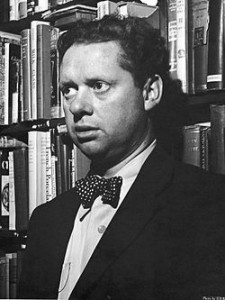
Welcome to “TGIF: That Gerund Is Funky”, a new weekly feature on Glossophilia. Every Friday, you’ll find a digest of some of the week’s best offerings about language, literature, grammar, usage and abusage — on the web and on the wire. Some of it will make you laugh, some might make you cry. Some will be genuinely useful, a lot of it won’t, and there will be stuff you just won’t believe. Enjoy (it).
~~~~~~~
On Facebook, Grammarly posted some incorrect word definitions offered by creative and lateral-thinking students. One of my favorites is Adamant: “pertaining to original sin” …
The Guardian reassured us that there are 10 grammar rules we no longer need to worry about. And one of those is starting sentences with a conjunction; another is all about what you should and shouldn’t end them with.
You think “OMG” or “srsly” are 21st-century inventions? You might have to think again, as Jen Doll, in The Atlantic‘s October issue, takes a look at the not-so-recent history of today’s hottest expressions (not yet online).
The Associated Press reported on the rise in heritage language programs — and why the need for them has grown. “Dorothy Villarreal grew up dreaming in Spanish, first in Mexico and later in South Texas, where her family moved when she was six. She excelled in school — in English. But at home life was in Spanish, from the long afternoon chats with her grandparents to the Spanish-language version of Barbie magazines she eagerly awaited each month. She figured she was fluent in both languages. Then the Harvard University junior spent last summer studying in Mexico and realized just how big the gaps in her Spanish were.”
Pride’s Purge offered us a very useful document: a pocket guide to Toryspeak – ie. what Tories (aka members of the British Conservative Party) say vs. what Tories mean. When they say they’re reforming the NHS, what do they REALLY mean? And what does everyone understand by it?
Keith Houston gives us a sneak peek [see Stealth Mountain below] of his new book, Shady Characters: The Secret Life of Punctuation, Symbols, and Other Typographical Marks, when he describes “four scandalously overlooked typographic outliers” in the Financial Times.
You might not want to try singing like David Bowie – but now you can read like him. As part of the exhibition “David Bowie Is”, which recently opened at the Art Gallery of Toronto, a list of the legendary singer’s top 100 books has been compiled. Open Book Toronto has the list.
The writer Margaret Atwood is among a group of prominent Canadian women who have launched a campaign to make the English-language lyrics to Canada’s national anthem more gender-neutral, as the BBC reports.
Oliver Moody wrote in The Times (UK) that “many teachers do not have adequate knowledge of English grammar to teach the new curriculum, according to the architect of a government-funded teaching programme. Bas Aarts, a professor of English linguistics at University College London, … said that the English tests for pupils up to the age of 14 introduced by Michael Gove, the Education Secretary, demanded more knowledge of grammar than many teachers possess.”
mental_floss brought us 9 colorful words and phrases from Breaking Bad‘s final season. (Here’s what I learned: The next time someone offers to send you on a trip to Belize, run in the other direction. Fast.)
On The Guardian‘s U.S. comment site, self-confessed accent geek Erica Buist asks whether Britain is becoming a nation of accent snobs. If we Brits don’t take the trouble to pronounce foreign words like bruschetta correctly, do we have the right to judge those who communicate less comfortably in English?
If you read literary fiction, you’ll become more empathic. That’s what a new scientific study shows, according to a New York Times science blog post. Apparently “reading literary fiction – as opposed to popular fiction or serious nonfiction – leads people to perform better on tests that measure empathy, social perception and emotional intelligence.” Um – do we really need scientists to tell us that? I hear a big resounding ‘duh!’ echoing through the chattering book groups of the world …
And finally, I think I’ve found my favorite Tweeter. Here is how Stealth Mountain @stealthmountain advertises his or her mission: “I alert twitter users that they typed sneak peak when they meant sneak peek. I live a sad life.” The replies to Stealth’s tweets are even funnier than the tweets themselves. Thanks to Reddit for the tip-off.










